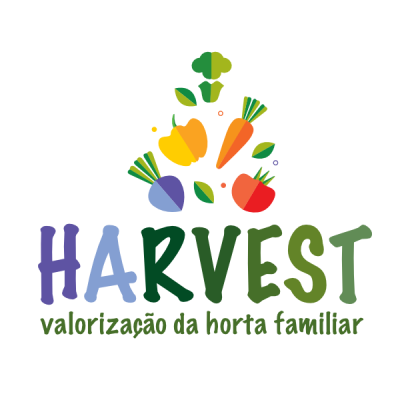
Identificação e Enquadramento:
Designação do projeto: HARVEST: Valorizar a Horta fAmiliar de forma a educaR para uma dieta mediterrânica, saudáVel ESustenTável.
Código do projeto: PRR-C05-i03-I-000157
Objetivo: Com o objetivo de promover a Dieta Mediterrânica no nosso país, garantindo uma alimentação sustentável, a principal estratégia desta proposta é valorizar e diferenciar os produtos das hortas familiares, tanto em meio rural como urbano. Para tal, este projeto irá desenvolver actividades agro-ecológicas em várias regiões do país, em hortas familiares, mas também em hortas urbanas e peri-urbanas em Lisboa, Viseu e Bragança, de forma a promover a utilização de práticas sustentáveis na agricultura familiar ao longo de toda a cadeia de valor, ou seja, desde a produção até ao consumidor final.
Região de Intervenção: Portugal
Entidades Beneficiárias:
Laboratório Colaborativo Montanhas de Investigação – Associação (Líder do Projeto)
– Direção Regional de Agricultura e Pescas do Norte (DRAPN)
– Instituto Politécnico de Bragança (IPB)
– Instituto Superior de Agronomia (ISA)
– Instituto Politécnico de Viseu (IPV)
– Direção Regional de Agricultura e Pescas do Centro (DRAPC)
– Associação de Desenvolvimento dos Concelhos da Raia Nordestina (CoraNe)
– Centro Operativo Tecnológico Hortofrutícola Nacional (COTHN)
– Associação Portuguesa de Agricultura Biológica (Agrobio)
– Deifil Technology, Lda (Deifil)
– Living Seeds Sementes Vivas, SA (Sementes Vivas)
– Delícias do Juncal, Lda (Delícias)
– Mata Verde Estudos e Projectos Lda (Mata Verde)
– ECOSEIVA – Agricultura Biológica Lda (ECOSEIVA)
Data de Aprovação: 17/01/2023
Data de Início: 17/01/2023
Data de Conclusão: 31 /12 /2025
Investimento Total Elegível: 775 472,16 €
Apoio financeiro da União Europeia: Investimento RE-C05-i03 – Agenda de investigação e inovação para a sustentabilidade da agricultura, alimentação e agroindústria; N.º 12/C05-i03/2021 – Projetos I&D+I – Projetos de Investigação e Inovação – Alimentação Sustentável
Objetivos
- Construir uma cadeia alimentar que beneficie os consumidores, os agricultores e o ambiente, com recurso a ferramentas de Inovação Social que ajudem a revitalizar a horta familiar.
- Fomentar o consumo de alimentos menos calóricos, como parte integrante na pirâmide alimentar da Dieta Mediterrânica, de modo a reverter as consequências do êxodo rural nos hábitos alimentares dos portugueses e a sua integração nos modelos de desenvolvimento rural.
- Consolidar e aprofundar métodos e Práticas Agroecológicas Inovadoras, de forma a garantir uma alimentação em modo de produção biológica, de forma que os consumidores possam fazer escolhas alimentares mais Saudáveis e Sustentáveis.
Atividades
- Dieta mediterrânica: espécies vegetais da horta e valor nutricional.
- Práticas de gestão do solo de modo a favorecer sistemas de economia de água nas hortas familiares.
- Sensibilização para uma gestão eficiente dos resíduos orgânicos da horta e domésticos. Dinamizar e otimizar o processo de compostagem nas hortas familiares.
- Práticas agroecológicas para uma maior sanidade vegetal na horta familiar.
- Horta familiar: emprego numa sociedade inclusiva.
- Promover o consumo de produtos oriundos das hortas familiares através da implementação de cadeias curtas de comercialização com garantia de origem e autenticidade.
- Os produtos da horta familiar. O que os diferencia para melhor?
- Gestão de projeto, coordenação e monitorização do projeto.
- Atividades de formação, disseminação e demonstradoras.
Resultados Esperados
Agenda “Terra Futura”:
HORTA BIOLÓGICA: Mais de 50% da área agrícola em produção sustentável
- 25% da produção agrícola em modo biológico, com recurso a uma maior eficácia e eficiência dos recursos solo, água, nutrientes e biodiversidade;
- 500 agricultores em modo biológico;
- 15 variedades hortícolas a recuperar e conservar no país;
- Zero uso de pesticidas na horta familiar;
- Reduzir em 40% o consumo de água nas hortas;
- Aumentar em 20% a compostagem comunitária.
HORTA INCLUSIVA: Instalar 80% dos novos jovens agricultores nos territórios de baixa densidade:
- 400 agricultores em ações do projeto;
- 12 Ações de sensibilização cidadã;
- Valorizar o papel da mulher rural.
HORTA SOCIAL: Aumentar em 20 % o nível de adesão à DM.
- 15 produtos da horta testados em condições pós-colheita;
- 100 % produtos da horta com código QR para favorecer a criação de cadeias curtas de comercialização;
- Capacitar aos horticultores com recurso a novas tecnologias, incluindo o Caderno de Campo digital;
- 10 Atividades demostradoras em cantinas de ensino secundário e universitário (meta a atingir > 100 escolas no país).
